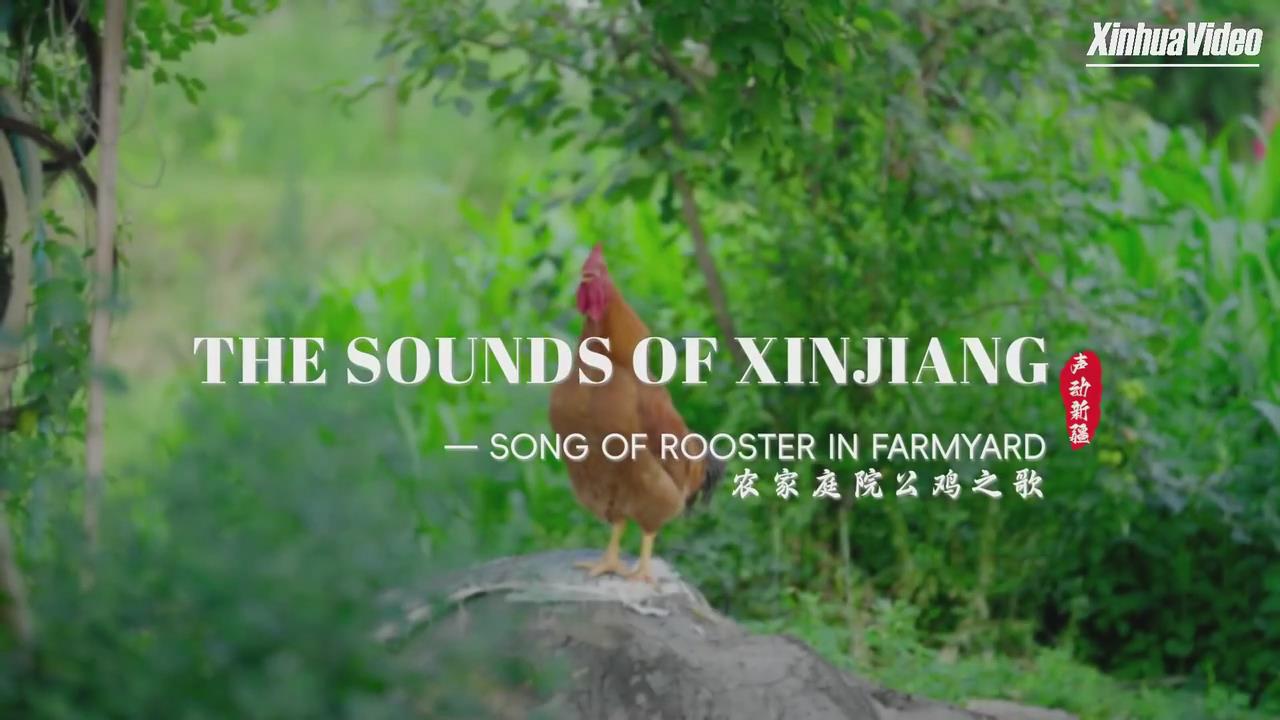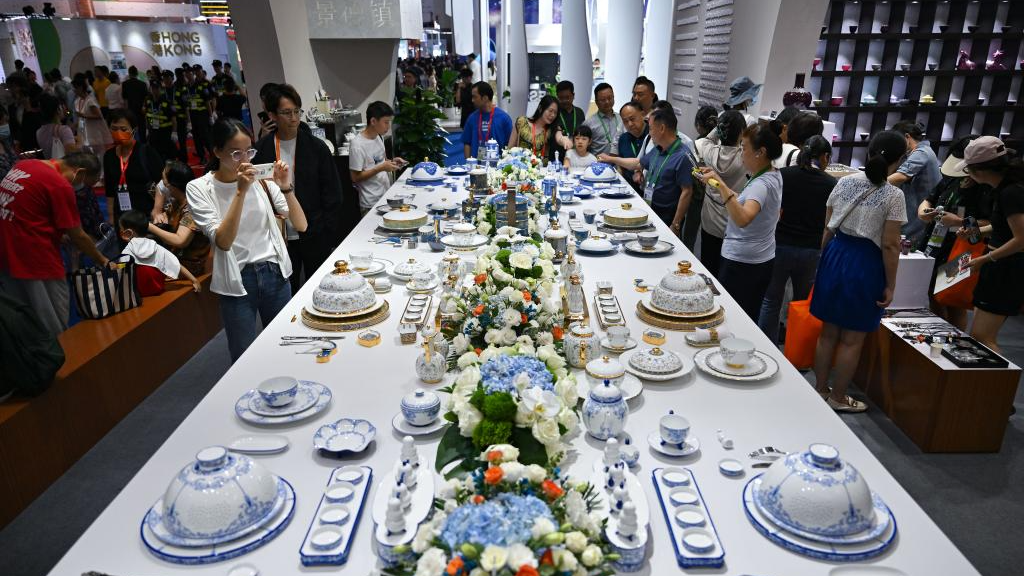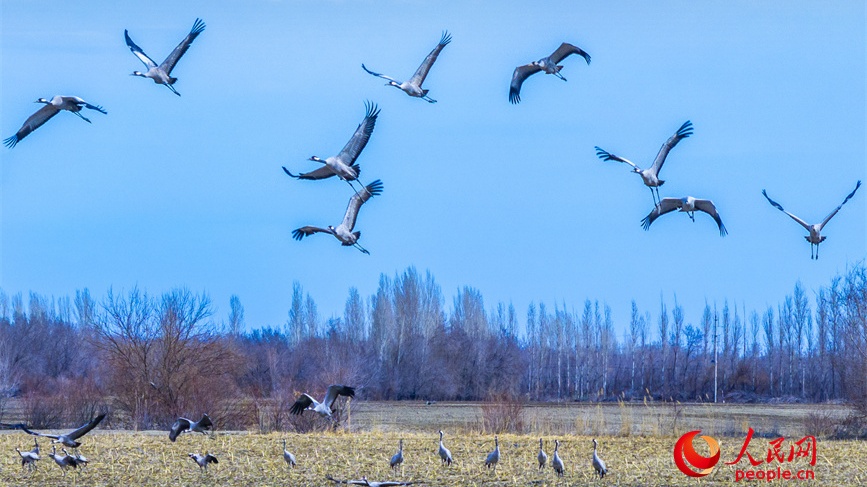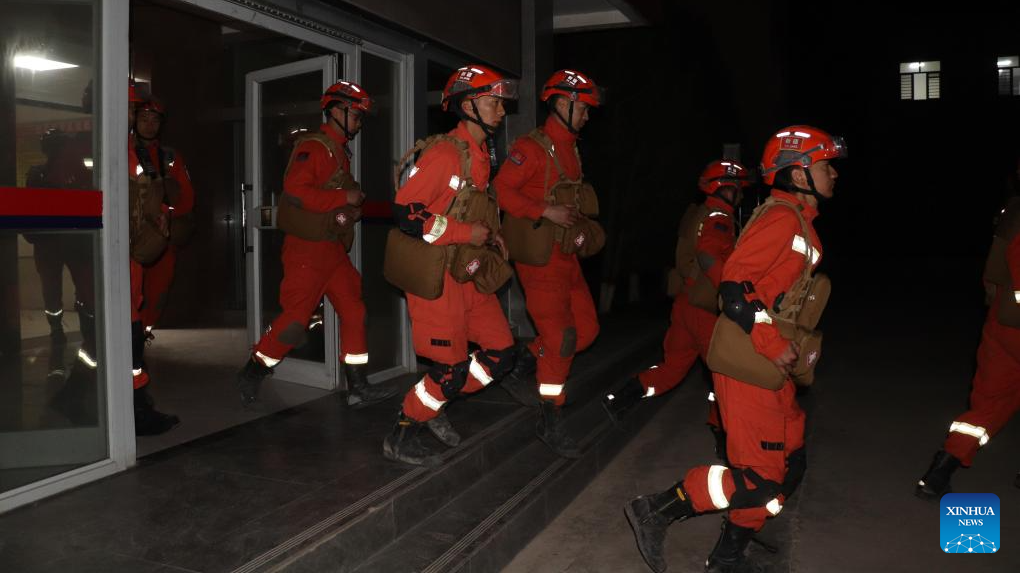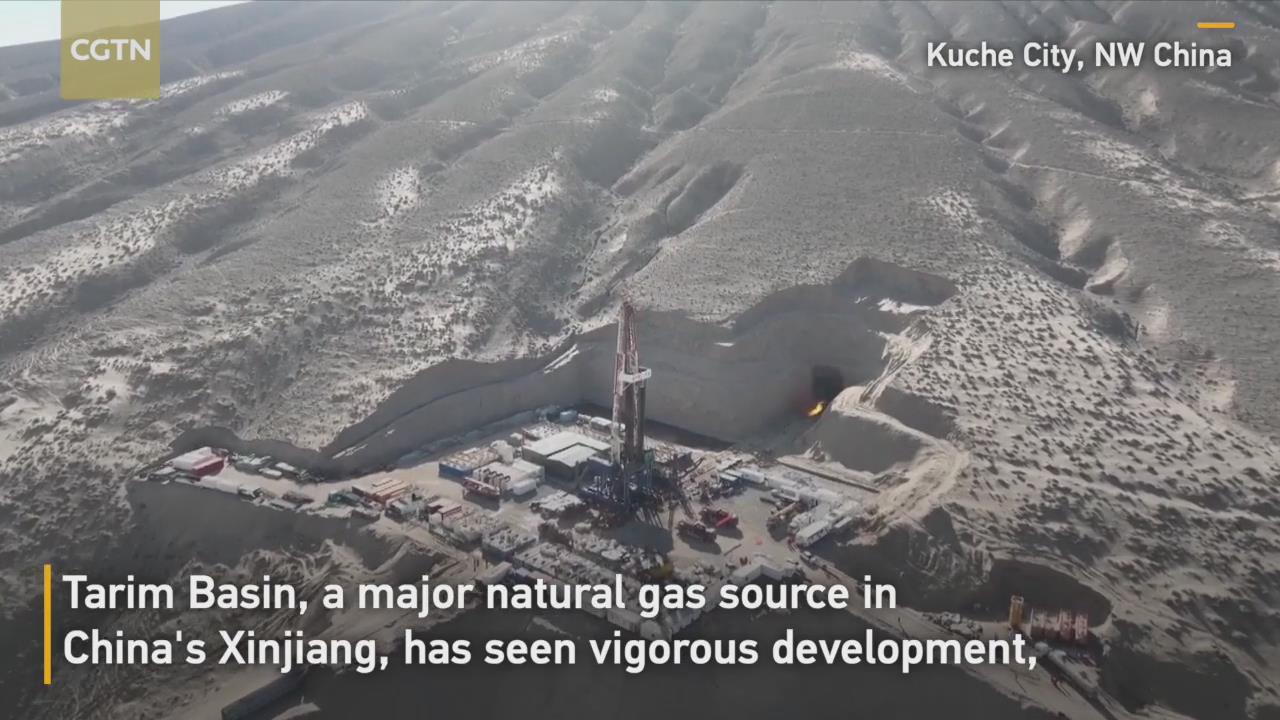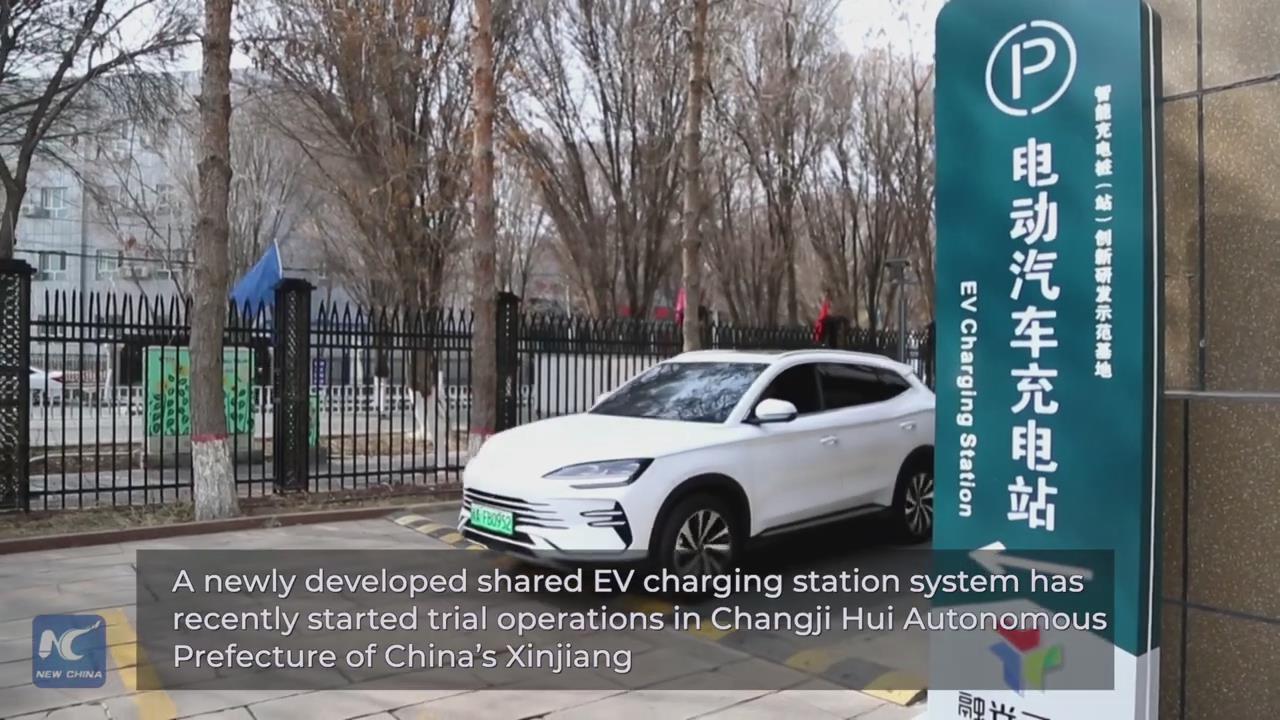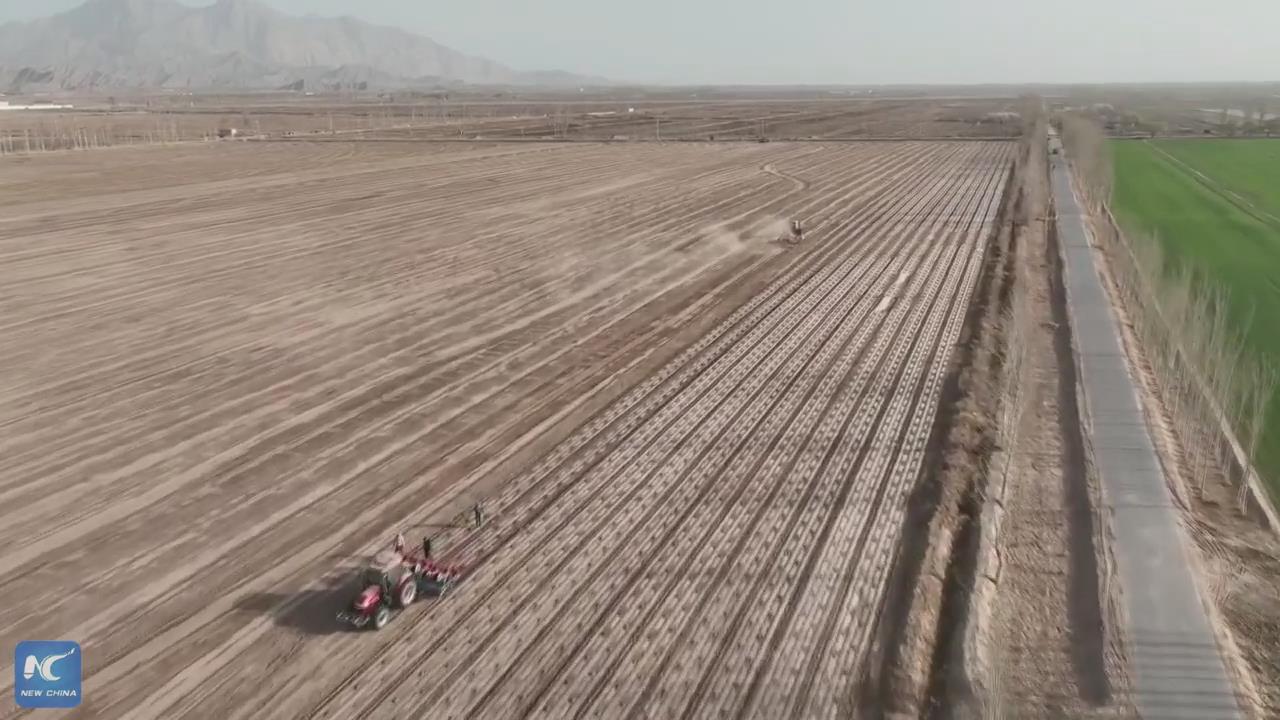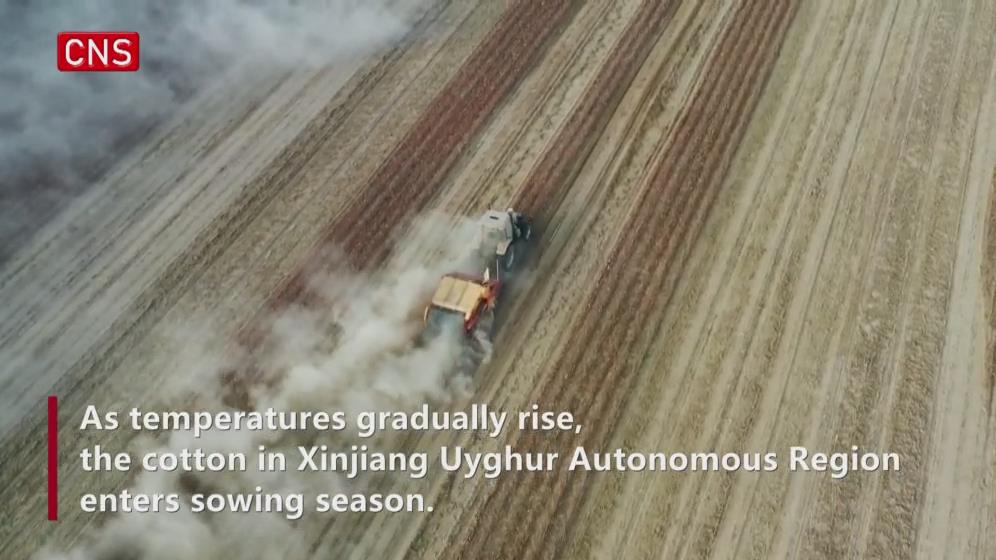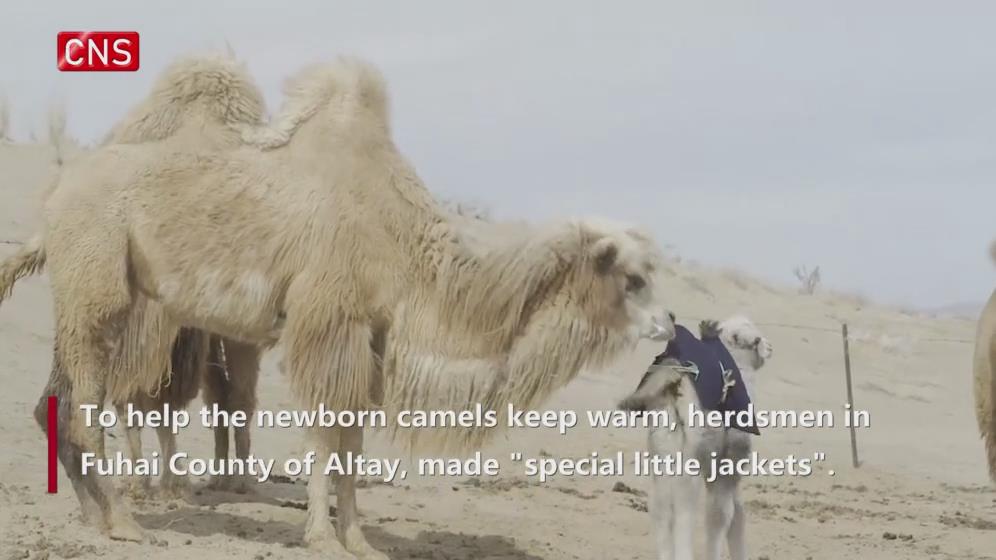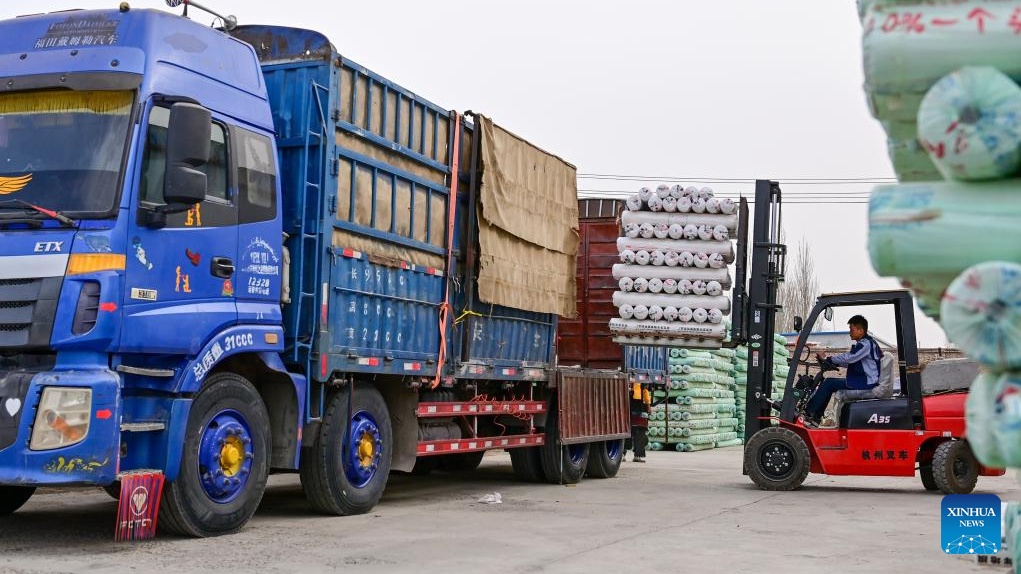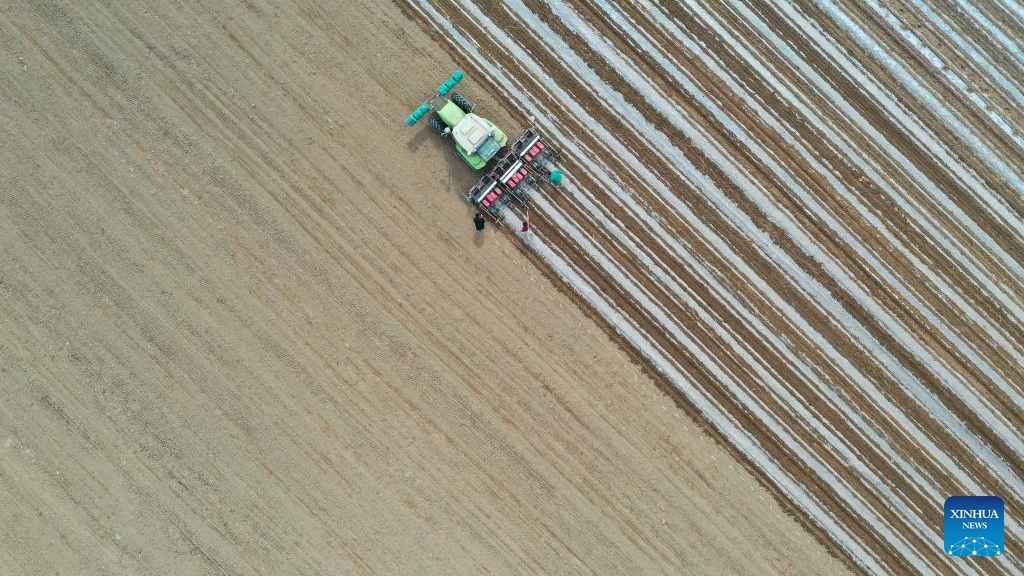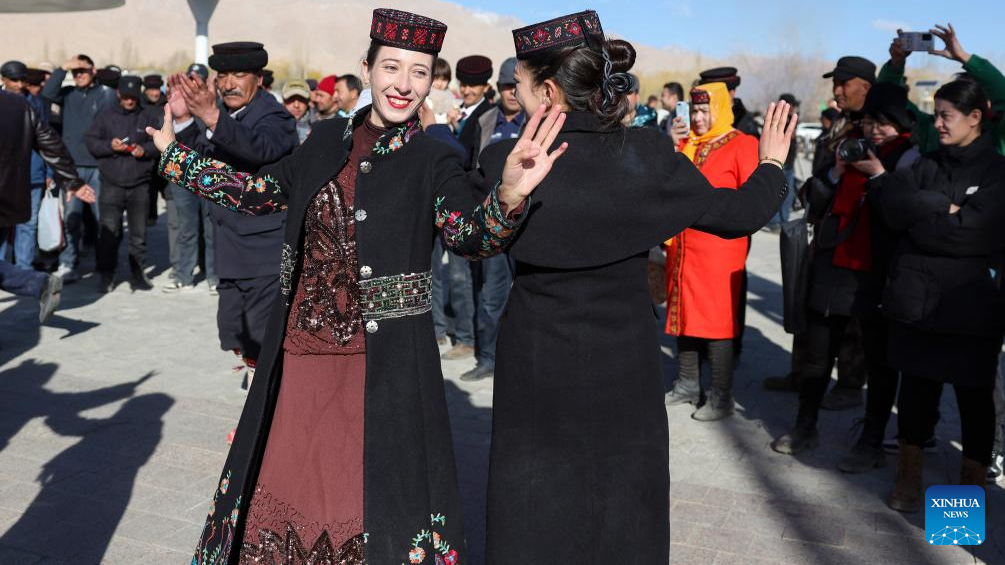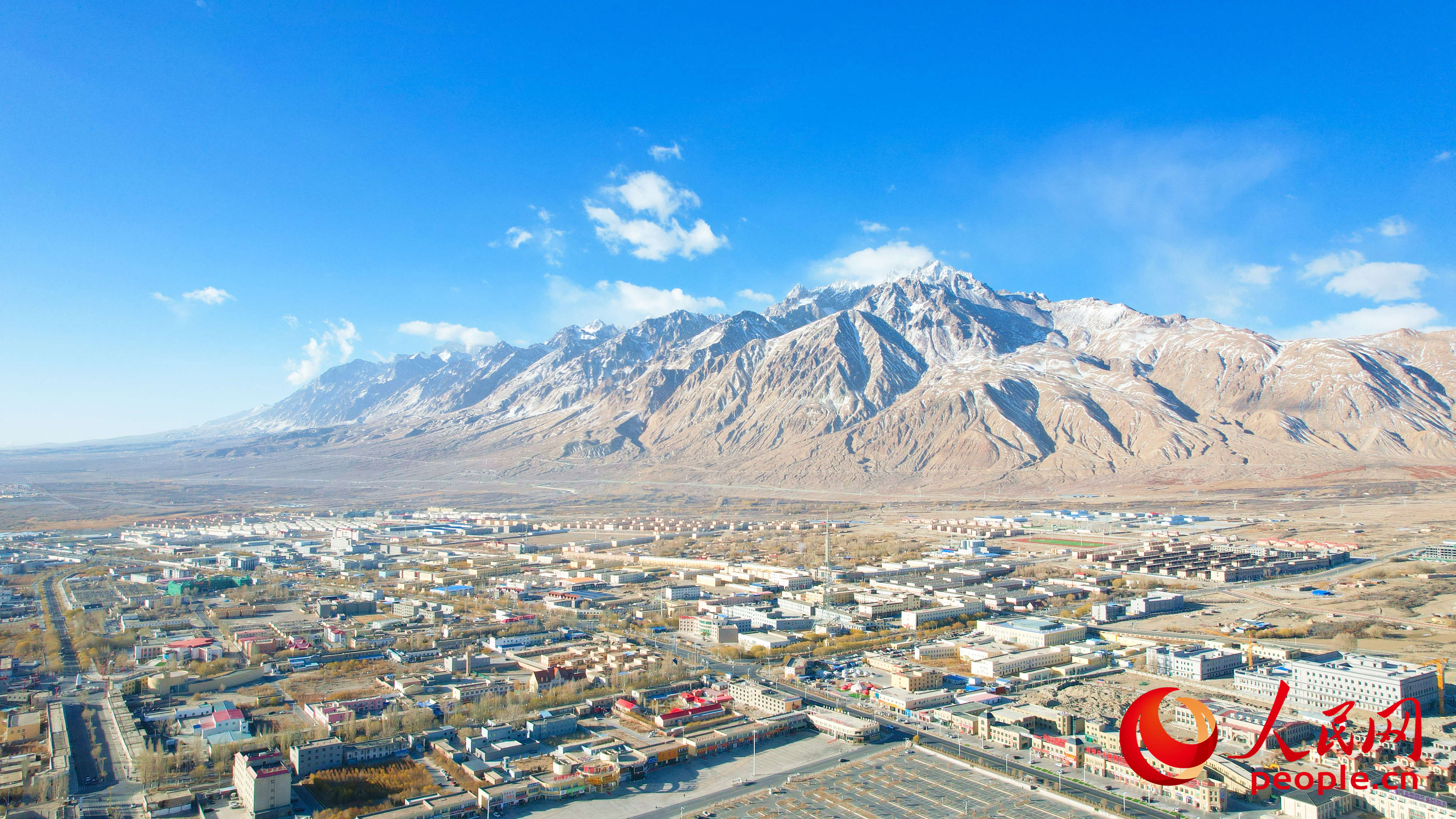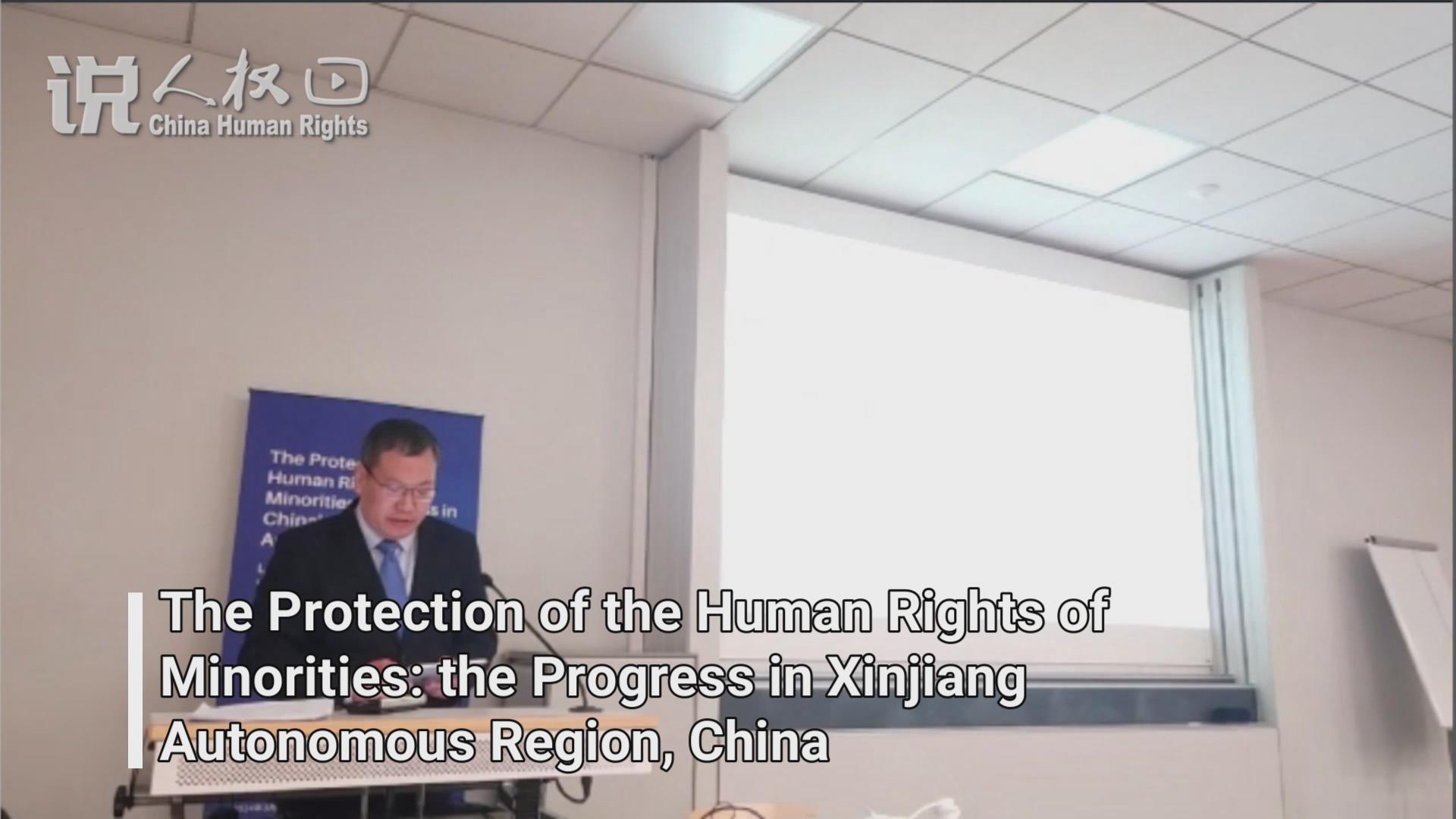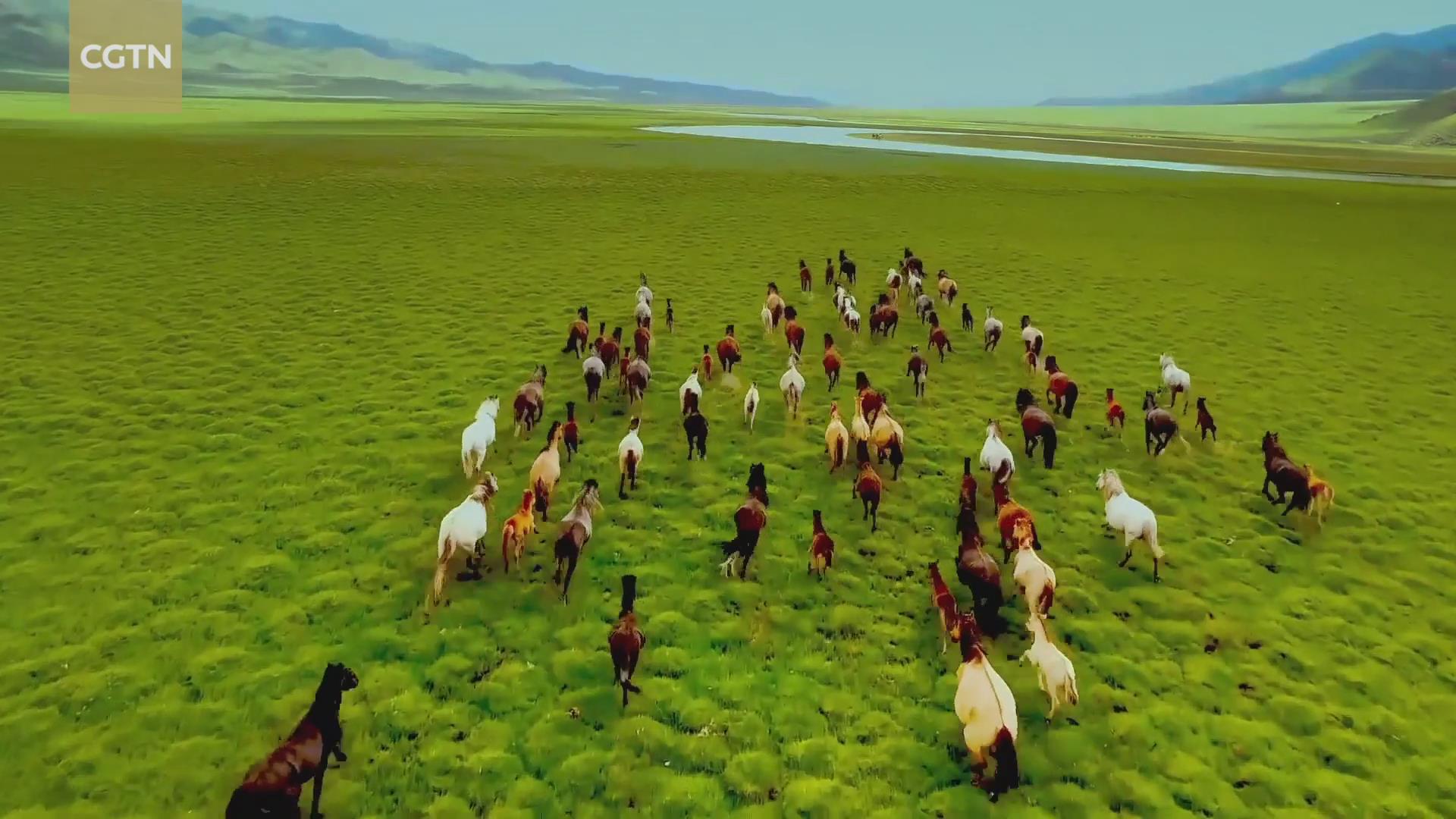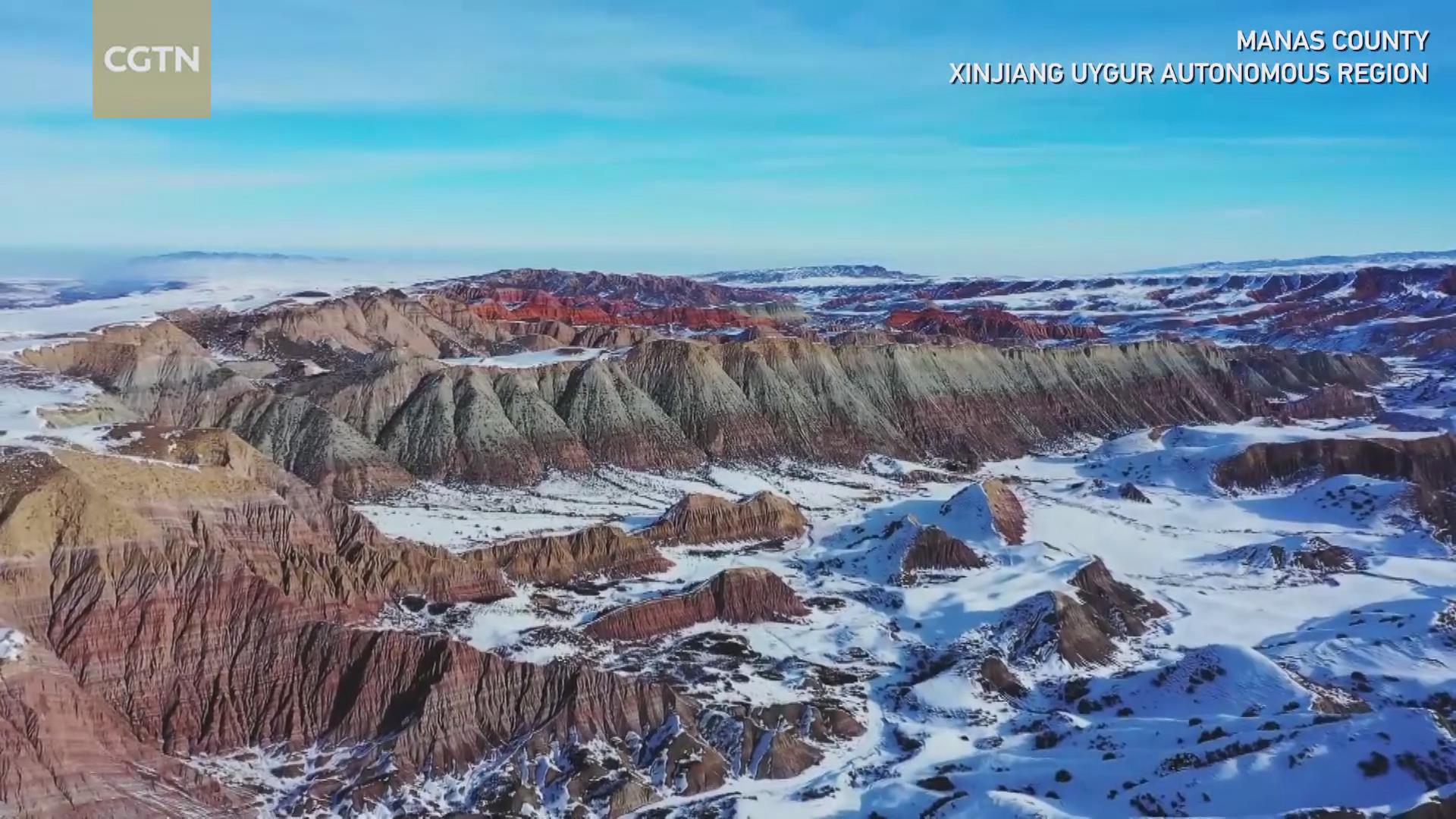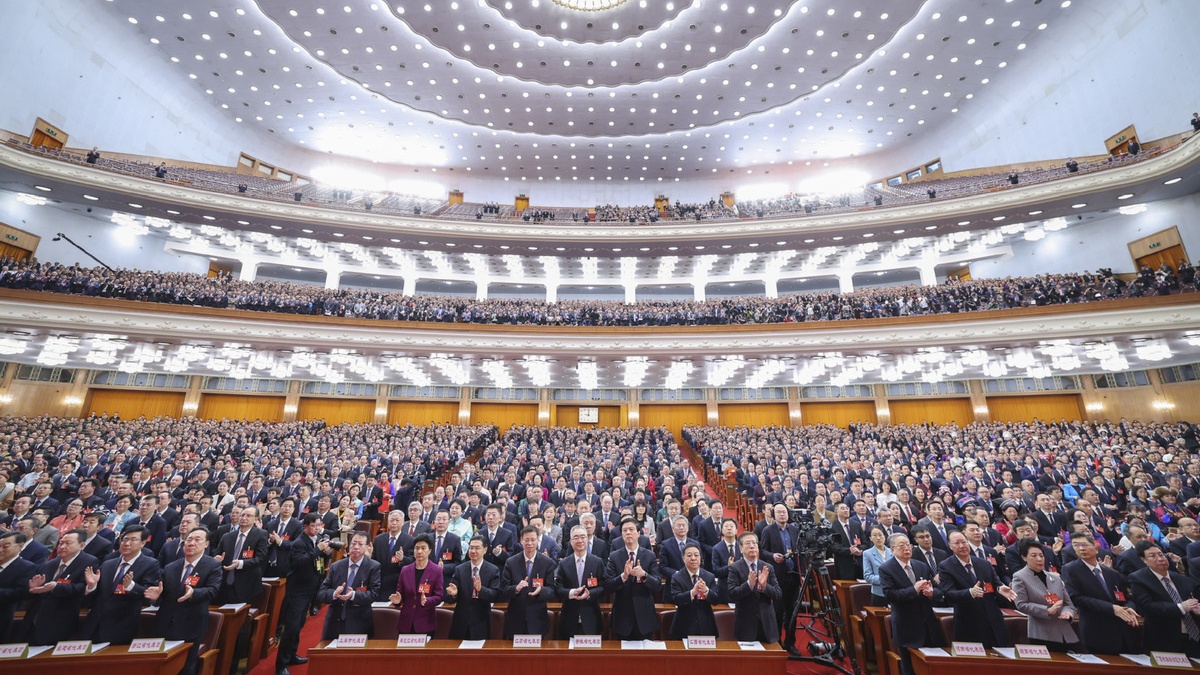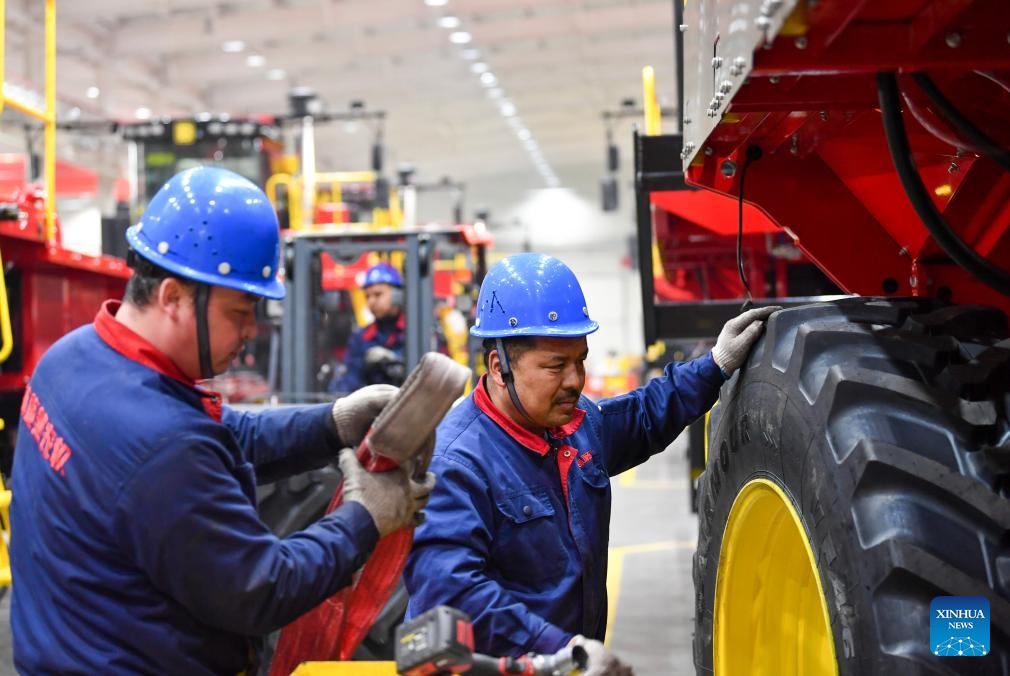
Amatjan Mamat mounts a tire onto a wheel of a cotton harvester at a cotton harvester factory in Wusu, northwest China's Xinjiang Uygur Autonomous Region, Feb. 28, 2024. (Xinhua/Zhao Ge)
As he watched over the automated machines roaring on a cotton field in Shaya County, northwest China's Xinjiang Uygur Autonomous Region, Amatjan Mamat couldn't help but remark that "harvest work has changed so much from the work I used to do."
Back in 2019, Amatjan set off on his first trip to offer on-spot after-sales services after taking a job in a harvester factory. He was surprised by just how orderly and efficient machines he helped produce were in action.
"It's all automatically done by machines, and manual labor is barely needed," he said, "If you do the math, you'll find reaping a kilo of cotton costs less than 1 yuan (14 U.S. cents). Growing cotton is very profitable thanks to these methods."
Amatjan's calculations were very different a decade ago. A native of Wusu City, a major cotton production area in northern Xinjiang, Amatjan naturally followed the family tradition of growing cotton for a living. He had a 10 mu (6,666 square meters) cotton field, and enticed by the promising cotton prices in 2015, he contracted an additional 50 mu of land.
However, the land in which he worked on consisted of six strips that were too narrow for large harvesters to operate.
"There weren't many types of harvesters at that time. So we paid two yuan for every kilo manually picked," the 44-year-old recalled, "We ended up losing 20,000 yuan after two years of hard work."
Little did Amatjan realize that during this period cotton farmers in Xinjiang would start to replace manual picking with machines. Data showed that more than 2,000 large harvesters worked across Xinjiang, effectively shortening the reaping time by half.
Luckily, Amatjan was able to promptly change his role in the evolving cotton industry. His father suggested that Amatjan get a job in a local cotton harvester factory. In the first month in his new position, he earned 5,500 yuan.
"I was so happy. I gave 1,000 yuan to my father. He said nothing and smiled. I knew he was happy for me," said Amatjan.
The new job had greatly eased his financial strain in supporting three young kids. Gradually the former farmer got used to the work and went on to become an outstanding member of the factory's final assembly team.
"The team consists of 21 workers, and 17 of them are ethnically Uygur, just like me," said Amatjan, noting that the 400-strong agricultural machinery enterprise employs people of various ethnic groups, including Uygur, Hui, Kazak, Han and Tibetan.
Now a skilled worker, Amatjan is adept at assembling and disassembling harvesters, both of which showcase his proficiency in handling the components with ease.
Last year, he helped assemble more than 400 agricultural machines, and his annual salary exceeded 100,000 yuan for the first time. It was during this period he also made another trip to Shaya.
"The farmers told me that our harvesters are more thorough than foreign ones. I felt very proud to hear this," said Amatjan.
Amatjan's experience from field to factory epitomizes the transformation of Xinjiang's cotton industry -- Long gone are the days of tiresome manual labor; enter an era of automated machines.
As China's largest cotton-growing region, Xinjiang produced 5.112 million tonnes of cotton in 2023. More than 85 percent of these fiber crops were picked by more than 7,000 harvesters.
Amatjan looks forward to another business trip to southern Xinjiang in October. At which point, he will earn a monthly payment of more than 10,000 yuan.
"Working hard is the only way to lead a good life," said Amatjan, "as the saying goes, there are only people who don't want to work, but there is no work that can't be done."
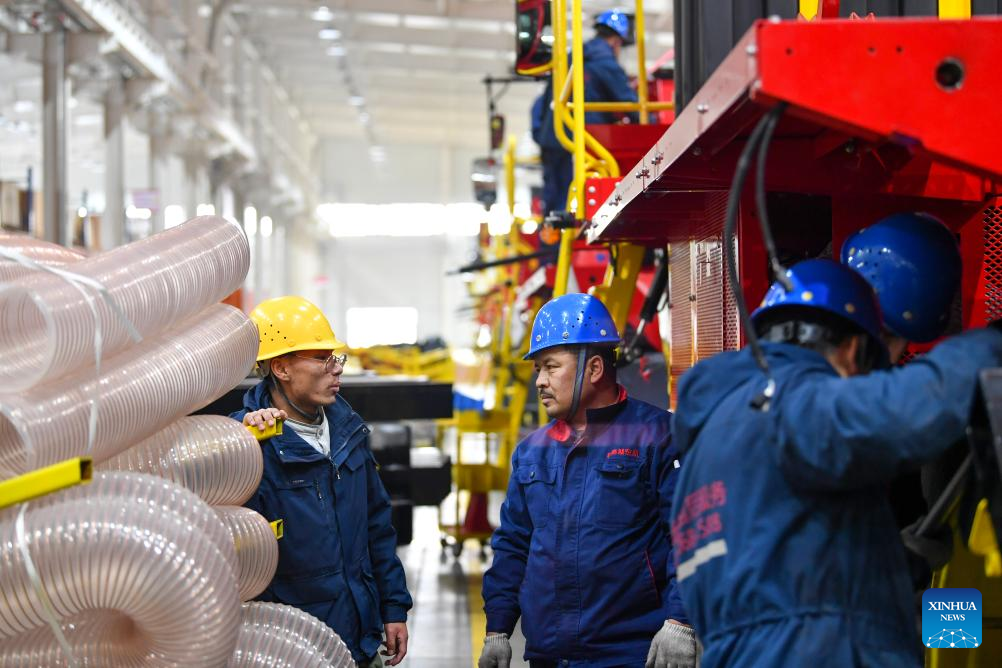
Amatjan Mamat (2nd L) works at a cotton harvester factory in Wusu, northwest China's Xinjiang Uygur Autonomous Region, Feb. 28, 2024. (Xinhua/Zhao Ge)
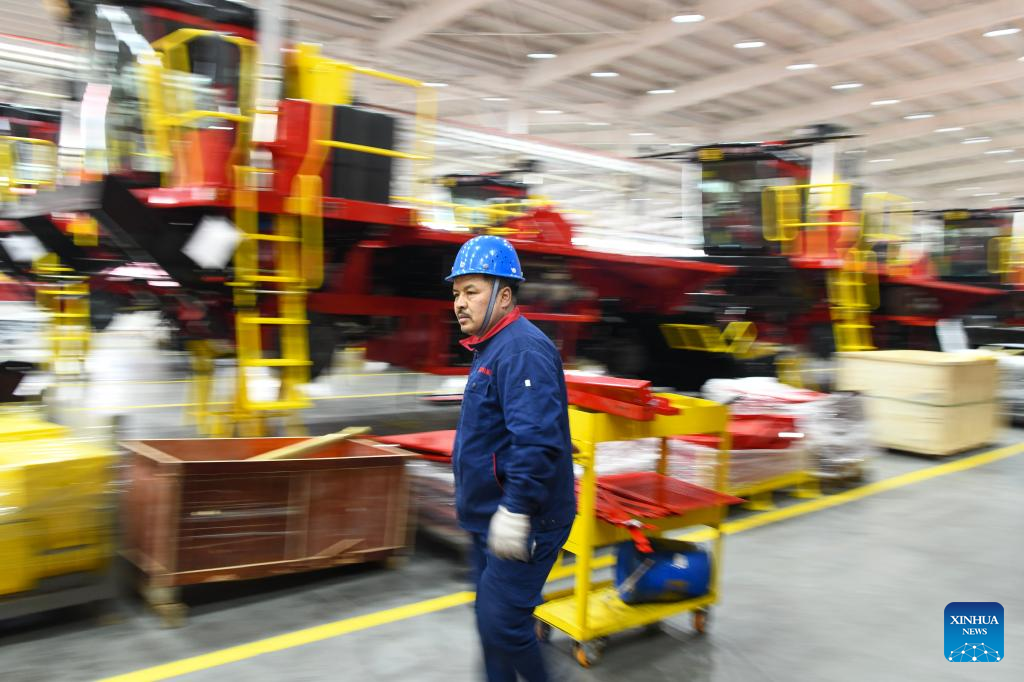
Amatjan Mamat works at a cotton harvester factory in Wusu, northwest China's Xinjiang Uygur Autonomous Region, Feb. 28, 2024. (Xinhua/Zhao Ge)
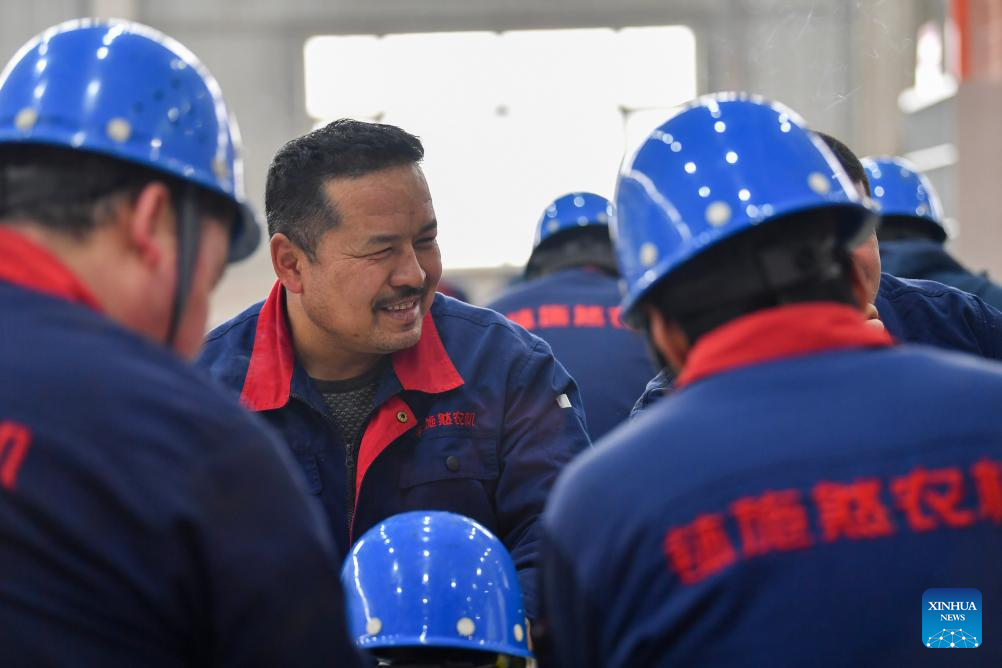
Amatjan Mamat is seen with colleagues at a cotton harvester factory in Wusu, northwest China's Xinjiang Uygur Autonomous Region, Feb. 28, 2024. (Xinhua/Zhao Ge)
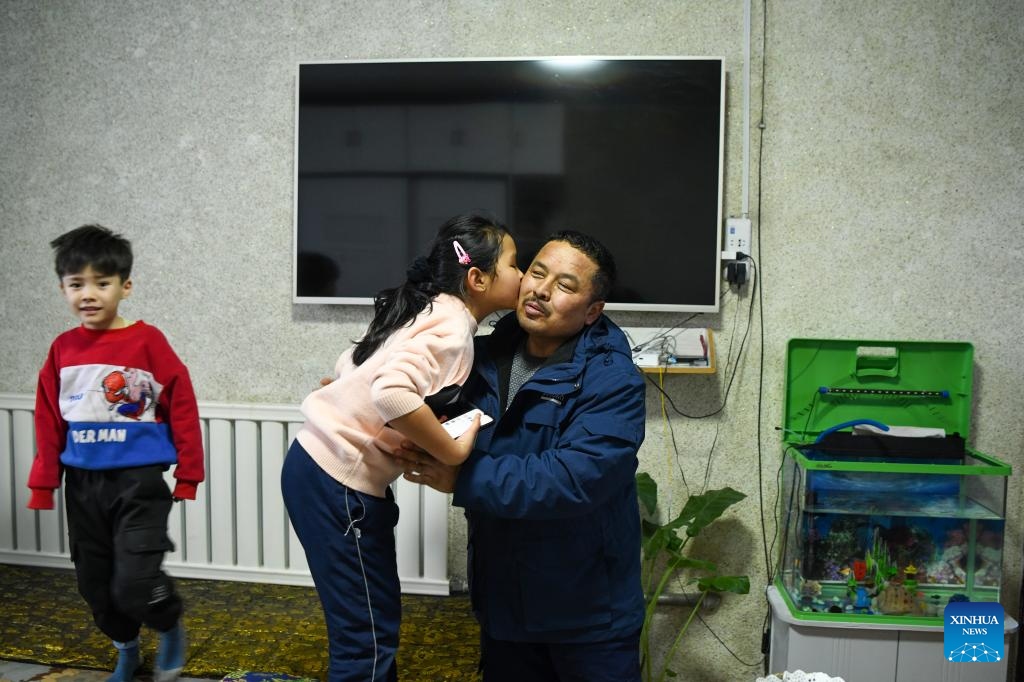
Amatjan Mamat is kissed by his daughter at home in Wusu, northwest China's Xinjiang Uygur Autonomous Region, Feb. 28, 2024. (Xinhua/Zhao Ge)

